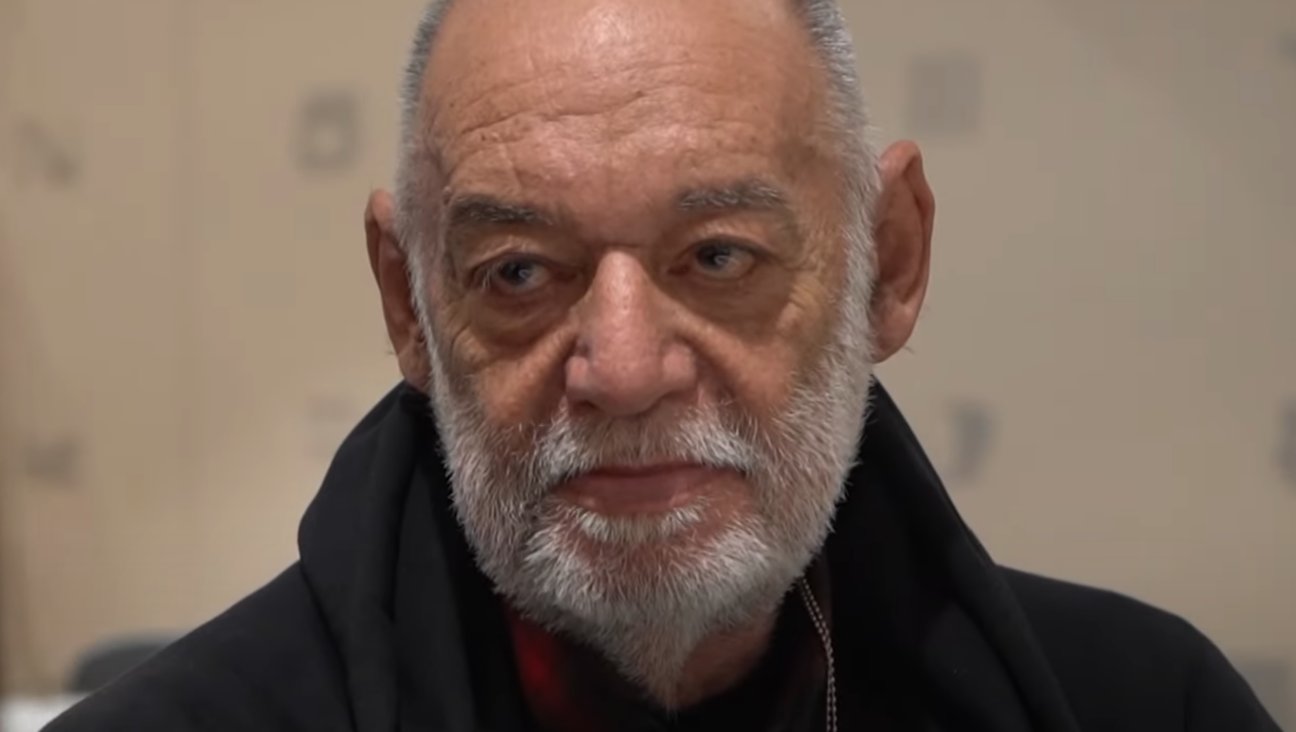Justice Ginsburg Was Right to Take a Moral Stand Against Trump

Image by Getty Images
I leave it to the legal scholars and commentators to weigh in on whether Justice Ginsburg violated the code of legal ethics by speaking out strongly against the presumptive Republican candidate for President. For my part, I think that she was more focused on morality rather than ethics. And as a Jew, I was proud that once again she spoke out for justice (albeit in a more explicitly political context).
I was privileged to hear Justice Ginsburg speak to the National Council of Jewish Women a number of years ago. She cited the influence of Jewish values on her life and spoke proudly about the prints on the theme of Tzedek that adorn the walls of her office at the Supreme Court. Perhaps it was those Jewish values that compelled her to speak out as well as current national events.
With the recent death of Elie Wiesel, we have been reminded in the media—social and otherwise—of his eloquent quotes, urging us to take a stand and reject silence in the face of injustice. And, after the current egregious racism and violence, the Black Lives Matter movement has reminded us that being white allies compels us to call it when we see it and speak out and act against racism.
All of this against the backdrop of a presidential election in which a major party candidate campaigns using overt racism, religious bigotry, and defense of violence.
Justice Ginsburg has never been shy about speaking out against injustice and bigotry, just look at some of her scathing dissents in landmark court cases that have, in recent years, eroded justice and rights for women and minorities.
For example, in her 37-page dissent in Shelby County v. Holder, the 2013 case that eviscerated the Voting Rights Act of 1965, she said of the majority opinion: “The Court’s opinion can hardly be described as an exemplar of restrained and moderate decision making. Quite the opposite. Hubris is a fit word for today’s demolition of the Voting Rights Act.” It seems relevant to note here that Justice Samuel Alito was reported to have rolled his eyes as she read her dissent from the bench.
Although Justice Ginsburg’s colleagues are more discrete about their politics, it is worth remembering that the late Justice Scalia went hunting several times with the former Vice President Dick Chaney even as the Court was considering cases brought by his administration. Arguably Justice Alito’s infamous mouthed response during the 2010 State of the Union address—“that’s not true”—to President Obama’s criticism of the decision in Citizens United indicates as much about Justice Alito’s political leanings as his protective attitude towards the high court.
With no legal reason to prevent her from weighing in on electoral politics, Justice Ginsburg may well have decided that the moral imperative to speak out in the face of injustice trumped the ethical norms of her profession as a judge. Although Justice Ginsburg apologized just today saying that her remarks were “ill-advised,” I like to think that I understand what led her to take the bold step of speaking out. I like to think that this wise Jewish woman took to heart Elie Wiesel’s words that: “There may be times when we are powerless to prevent injustice, but there must never be a time when we fail to protest.”
A message from our Publisher & CEO Rachel Fishman Feddersen

I hope you appreciated this article. Before you go, I’d like to ask you to please support the Forward’s award-winning, nonprofit journalism so that we can be prepared for whatever news 2025 brings.
At a time when other newsrooms are closing or cutting back, the Forward has removed its paywall and invested additional resources to report on the ground from Israel and around the U.S. on the impact of the war, rising antisemitism and polarized discourse.
Readers like you make it all possible. Support our work by becoming a Forward Member and connect with our journalism and your community.
— Rachel Fishman Feddersen, Publisher and CEO
























